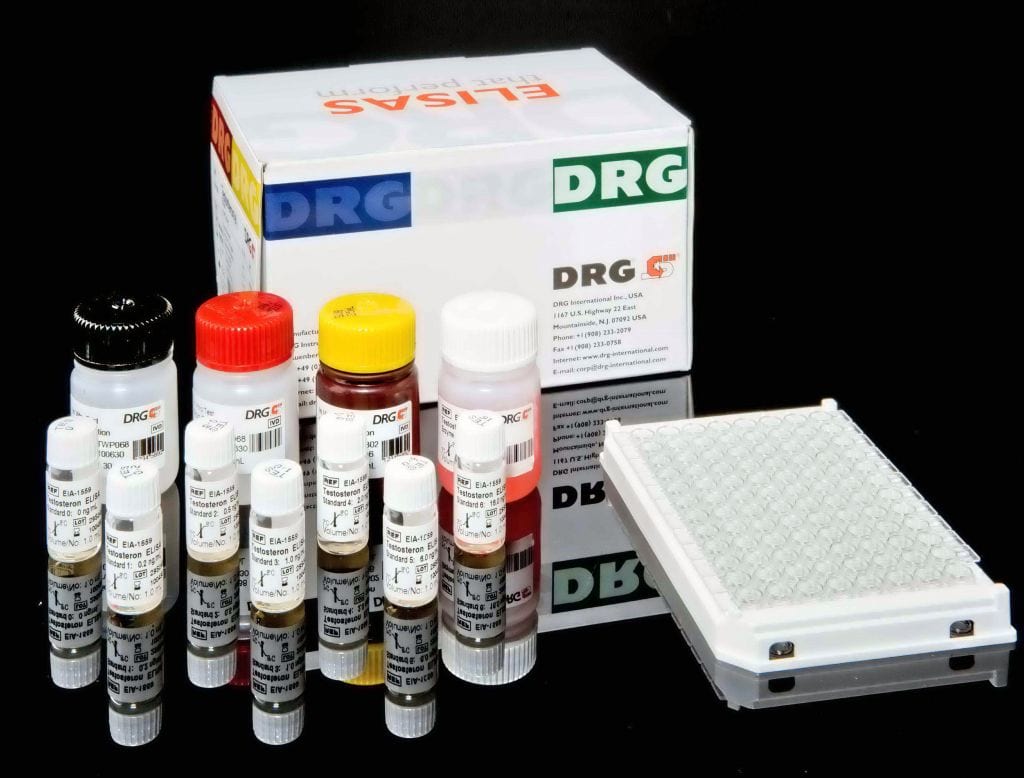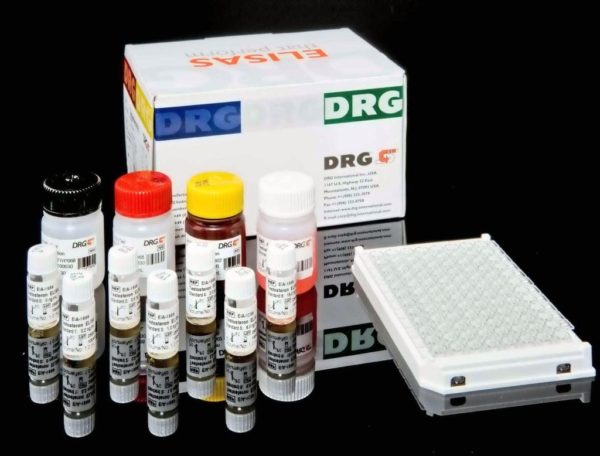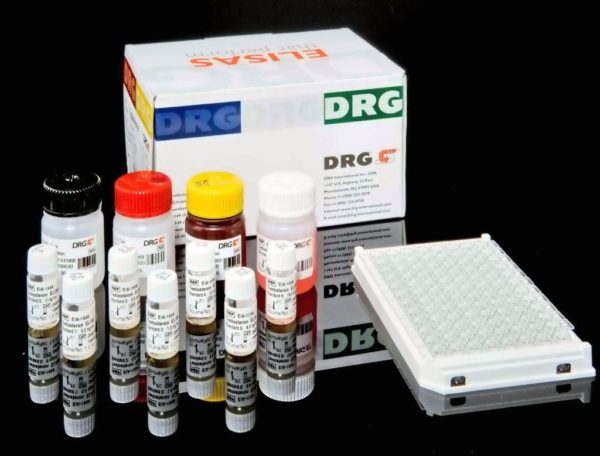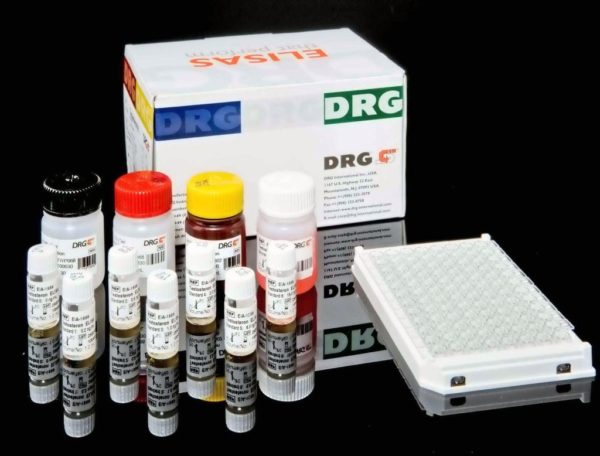Description
Enzyme immunoassay for the in-vitro diagnostic quantitative determination of metanephrine in human urine.
The catecholamines adrenalin, noradrenalin and dopamine are synthesized in the adrenal medulla, the sympathetic nervous system and in the brain. They influence virtually all tissues and are involved together with other hormonal and neuronal systems in the regulation of a wide variety of physiological processes. As catecholamines and their metabolites metanephrine and normetanephrine are secreted in increasing amounts in a number of diseases, they may be used for diagnostic purposes. In this context, diagnosis as well as the follow-up of tumor diseases of the nervous system are of special importance. This applies primarily to the pheochromocytoma, but also the neuroblastoma and the ganglioneuroma.
Malignant growth is described in 10% of pheochromocytomas. Furthermore, an increase of catecholamines and their metabolites metanephrine and normetanephrine can be observed in the carcinoid.
The assay procedure follows the basic principle of competitive ELISA whereby there is competition between a biotinylated and a non-biotinylated antigen for a fixed number of antibody binding sites. The amount of biotinylated antigen bound to the antibody is inversely proportional to the analyte concentration of the sample. When the system is in equilibrium, the free biotinylated antigen is removed by a washing step and the antibody bound biotinylated antigen is determined by use of streptavidine alkaline phosphatase as marker and p_nitrophenyl phosphate as substrate. Quantification of unknowns is achieved by comparing the enzymatic activity of unknowns with a response curve prepared by using known standards.




